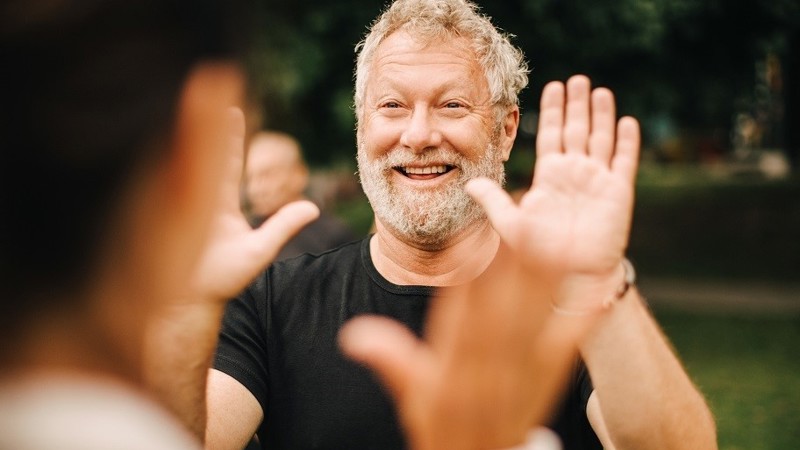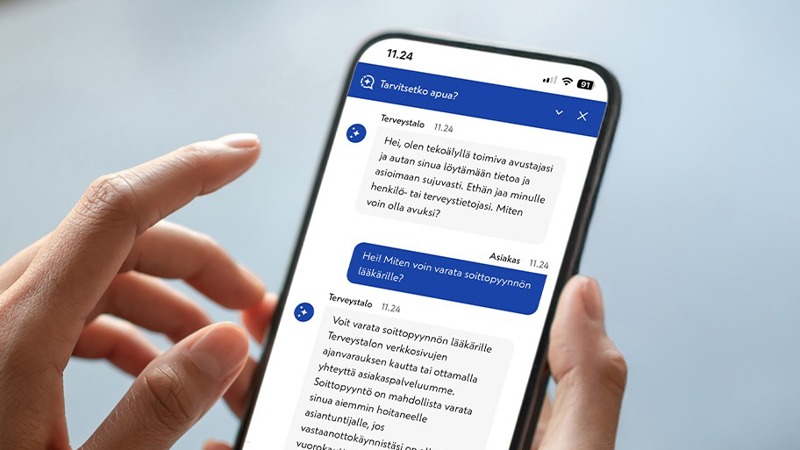Embarking on a new lifestyle - how do I do it?
Who among us hasn't at least once in our lives decided to start a new habit and slipped back into the old one within a few days or weeks? Changing an already routine habit is difficult and requires active work. Sari Nuikki, an occupational health psychologist at Terveystalo, explains the anatomy of change and how quickly new lifestyles become habitual.

The formation of habits and changes in lifestyles have been widely studied by different research groups and around the world. The most famous study (Philippa Lally, Cornelia Gardener, Claire Deckers and Bas Verplanken, 2009) found that it takes on average about 66 days to adopt a new habit.
– 66 days means just over two months. In the hectic world of modern person, such a long period can feel unattainable and unmotivating, so it is best to break down the change into shorter 3-week periods: start a new habit, commit to it and ingrain it," says Nuikki.
I do this without having to consciously remember it
A habit is a behaviour that happens automatically without much thought. Establishing new habits requires multiple, consistent repetitions, which inevitably takes time. Changing a lifestyle is always about doing something new, not just about stopping an old habit: you have to start by actively remembering to make a choice in favour of a new habit rather than an automatic old one.
– Repetition is the key to forming a new habit. Research shows that repetitive behaviour in the same situation helps habits to become established," says Nuikki.
Learning takes time - a few slips don't destroy progress
Breaking habits is very difficult, because new habits do not erase old ones. So new habits have to become stronger to become automatic choices in the long term. Habit formation is theorised to be based not on external rewards or punishments, but rather on an individual's inner desire and purpose. According to Nuikki, when embarking on a journey of change, it is important to consider why change is important to you and what achieving it would enable you to do. Once we have set a goal that we feel is important to us, our motivation drives our behaviour towards it.
– There is no point in getting discouraged after a few days or weeks, even if the new habit is not yet the automatic choice. Breaking any habit is difficult and requires intrinsic motivation, which comes from innate enthusiasm. Think about the things you enjoy. Can you add elements of enjoyment to what you do?
When you want to create a new habit
1) Clearly define what you will do differently and in what situation
Choose a measurable goal that is challenging enough, but still achievable. Keep a record of the change so you can track your progress. For example, if you want to start exercising, you could set a goal to walk for 15 minutes three times a week. Small steps are easier to take and lower the threshold for starting.
2) Try to repeat a new activity consistently
Associate a habit with a specific event in your daily schedule to help establish a routine. For example, decide the context of the new habit, such as "at lunch I always drink a glass of water", when it doesn't matter where or what time you eat lunch. Over time, the new habit will start to form and require less and less effort.
3) Reward yourself and give yourself time
Successes in themselves are motivating. Notice them and enjoy even small successes. Feed your inner motivation by tracking your progress and reward yourself for your achievements along the way. Be kind to yourself if you don't succeed right away. Try to treat setbacks as learning experiences. Remember that a new habit only takes root once the old one has been learned from, and choosing a new habit no longer requires constant active thinking.
4) Maintain optimism for change
If you've made lifestyle changes in the past, think back to how you did and what strengths you drew on last time. Think about what might work for you now? Who could support you in making the change?
Read more articles

What is metabolic age and why should you care about it?
A new laboratory study by Terveystalo reveals how your body is aging. Metabolic age makes biological aging visible.

Smooth assistance for your needs – our AI assistant is now at your service
You can now find Terveystalo’s AI assistant on our website — a quick and easy way to get answers based on the information available on our site. For now, the assistant is available only on the Finnish‑language section of our website, but you can chat with it in English.

How technology helps relieve mental stress: "When the load is high, the threshold must be low."
Mental health disorders have overtaken musculoskeletal disorders, which had long been the leading cause of sick leave. Work is changing, and the range of sick leave caused by mental health issues has also changed. We must be able to offer new solutions to this challenge.

Extensive data set of 200,000 samples: Nightingale study reveals link between illness risks and sick leave
Data from the Finnish Nightingale study, which is used in Terveystalo's occupational health services, reveals a clear link between lifestyle-related health risks and sick leave. The exceptionally extensive data set of over 200,000 customers shows that people with a low risk of illness had significantly fewer absences, while those in high-risk groups had more absences. The results highlight the importance of preventive healthcare in ensuring work ability and the competitiveness of companies.

Strong identification speeds up your service experience when calling us
Soon you can identify yourself easily and securely before your call is answered. Read below to see how the identification process works.

Terveystalo's digital services have been awarded the internationally recognized ISO27001 information security certification.
Terveystalo's information security practices, processes, and risk management are in line with international best practices.